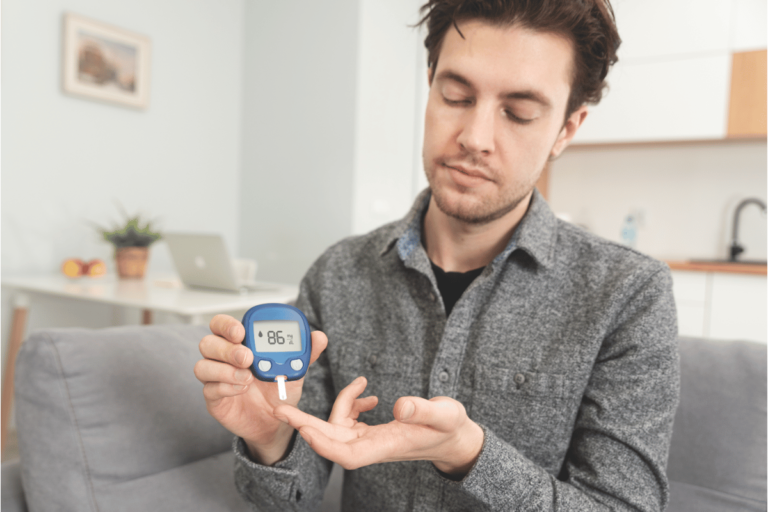How Acupuncture Can Enhance Your Mental Health and Well-being?
Acupuncture, a treatment method that has been used for thousands of years, is gaining recognition for its benefits in improving mental health and overall well-being. With a growing body of research supporting its effectiveness, acupuncture is becoming a preferred choice for those seeking holistic approaches to managing mental health conditions like anxiety, depression, and stress. In this article, we will explore how acupuncture can enhance mental health, the specific conditions it can address, and the overall well-being it promotes.
What is Acupuncture?
Acupuncture is a key component of Traditional Chinese Medicine (TCM), which is based on the idea that health is the result of a harmonious balance of energy, known as “Qi” (pronounced “chee”). According to TCM, the body’s energy flows through specific pathways, called meridians. When this energy flow is blocked or unbalanced, physical and mental health problems can arise.
In acupuncture, fine needles are inserted into specific points along these meridians to restore balance and promote healing. The goal is to stimulate the body’s energy flow, helping it regain equilibrium and improve both physical and mental well-being. While acupuncture is often used to treat physical ailments such as pain, its effects on mental health are also profound, making it an increasingly popular choice for addressing mood disorders, stress, and emotional imbalances.
The Impact of Acupuncture on Mental Health
Acupuncture has a significant impact on mental health by targeting the root causes of various emotional and psychological issues. It is believed to regulate the body’s nervous system, increase blood circulation, and stimulate the release of neurochemicals that help improve mood and emotional stability. Several studies have shown that acupuncture can have a positive effect on conditions like anxiety, depression, and stress by addressing both physical and emotional health concerns.
- Reducing Anxiety: Acupuncture is well-known for its ability to reduce anxiety levels. It works by stimulating the body’s parasympathetic nervous system, which helps counteract the body’s fight-or-flight response, promoting relaxation and reducing feelings of anxiety. Acupuncture points that correspond to the heart, lungs, and spleen are often targeted to help calm the nervous system and alleviate anxiety symptoms.
- Improving Mood: Acupuncture is believed to influence the production and release of endorphins, serotonin, and other mood-regulating neurotransmitters. These chemicals are essential for maintaining emotional balance and mental well-being. By improving the flow of these substances, acupuncture can help lift mood, reduce irritability, and promote a more positive outlook on life.
- Reducing Stress: One of the most common reasons people turn to acupuncture is for stress relief. Acupuncture promotes the release of tension in both the body and mind, helping to reduce stress levels. By targeting specific acupoints, acupuncture helps the body enter a state of deep relaxation, activating the parasympathetic nervous system, which is responsible for rest and recovery.
- Improving Sleep: Mental health and sleep are closely linked. Poor sleep can exacerbate mental health conditions, and likewise, mental health issues can cause sleep disturbances. Acupuncture has been shown to improve sleep quality by balancing the body’s energy and promoting relaxation. Regular acupuncture sessions can help individuals with insomnia experience better sleep, which in turn supports their overall mental well-being.
Acupuncture for Common Mental Health Issues
Acupuncture can be particularly beneficial for individuals struggling with common mental health issues. Below are some of the conditions that can be addressed with acupuncture:
1. Anxiety
Acupuncture is widely regarded as an effective treatment for anxiety. By reducing the physical symptoms of anxiety such as rapid heartbeat, shallow breathing, and muscle tension acupuncture can provide significant relief. Acupuncture works by stimulating points that promote relaxation, calm the nervous system and reduce the emotional intensity of anxiety. Studies have shown that regular acupuncture treatments can decrease anxiety levels and improve overall well-being.
2. Depression
Acupuncture’s impact on depression is also well-documented. Depression is often associated with an imbalance in brain chemicals such as serotonin and dopamine, both of which play a crucial role in regulating mood. Acupuncture can stimulate the production of these neurotransmitters, helping to restore emotional balance. By increasing the circulation of “happy hormones,” acupuncture can reduce the symptoms of depression, helping individuals feel more positive and energetic.
3. Stress
Acupuncture is known to be particularly effective at reducing stress levels. By activating specific acupoints, acupuncture stimulates the body’s natural ability to respond to stress more effectively. It helps the body transition from the fight-or-flight mode to a state of rest and recovery, improving the body’s ability to cope with stress. Acupuncture also helps balance the hormone cortisol, which is released during stressful situations, thereby reducing its negative impact on both physical and mental health.
4. Insomnia
Sleep disorders are often a result of mental health problems, and acupuncture can be highly effective in improving sleep quality. By relaxing the nervous system, acupuncture helps individuals with insomnia fall asleep more easily and experience deeper, more restorative sleep. Better sleep leads to improved mood, energy, and overall mental health.
The Benefits of Acupuncture for Overall Well-being
Acupuncture offers more than just relief from mental health conditions it promotes overall well-being. Regular acupuncture sessions can improve sleep quality, increase energy levels, and enhance mood. Many people report feeling more relaxed, balanced and energized after acupuncture treatments.
By treating the body and mind holistically, acupuncture fosters a sense of harmony, helping individuals to feel more connected and grounded. It is a gentle yet powerful treatment that can help people achieve a greater sense of emotional balance and mental clarity.
Fit 4 Life Physiotherapy offers acupuncture in winnipeg, providing an effective and natural solution for individuals looking to improve their mental health. Whether you are struggling with anxiety, depression, stress, or sleep issues, acupuncture can offer significant benefits. Their experienced practitioners use acupuncture as part of a comprehensive approach to help patients achieve better mental health and overall well-being.
What to Expect During an Acupuncture Session
If you are new to acupuncture, you might be wondering what to expect during your first session. The process typically begins with a consultation, where your acupuncturist will discuss your medical history, symptoms, and specific health concerns. Based on this information, the practitioner will select the appropriate acupuncture points to target.
During the session, the acupuncturist will insert very fine needles into specific areas of your body. Contrary to popular belief, acupuncture is generally painless. Some people may experience a slight sensation when the needles are inserted, but this is typically brief and mild.
Acupuncture sessions usually last between 30 to 60 minutes. Afterward, many people report feeling deeply relaxed, with an overall sense of well-being. Acupuncture is typically used as part of an ongoing treatment plan, and the number of sessions required will vary depending on the individual’s needs.
Conclusion
Acupuncture is a powerful tool for enhancing mental health and overall well-being. From reducing anxiety and stress to improving sleep and mood, acupuncture offers a natural, holistic approach to addressing mental health challenges. With its ability to promote relaxation, balance brain chemicals, and support the body’s natural healing processes, acupuncture can help individuals achieve a greater sense of emotional and mental harmony. Whether you are looking to manage stress, alleviate symptoms of anxiety or depression, or improve sleep quality, acupuncture is worth considering as a complementary treatment.







